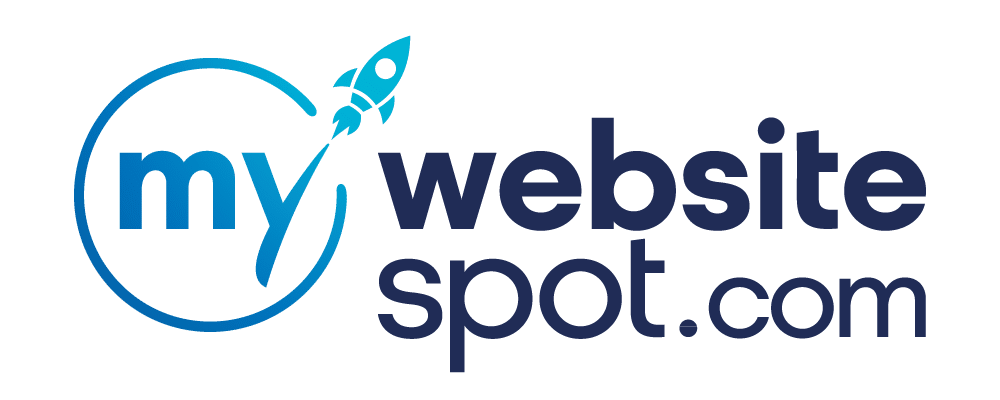How Do You Create A Topic Authority?
The concept of “Topic Authority” in SEO should be on your radar. Where the internet is teeming with information, establishing yourself as an authority in your niche is crucial for success.
Topic Authority refers to the trust and expertise your website holds within a specific topic or niche. Search engines like Google are more likely to display your content prominently in their search results when your website is considered an authoritative source on a particular subject. This means more organic traffic, higher click-through rates, and increased visibility for your website.
You’re probably asking, “How do you create topic authority?”
Creating topic authority is not an overnight achievement. It’s a continuous process that requires dedication and strategic efforts. In this article, we’ll answer your burning questions and help you understand how to harness topic authority to boost your website’s rankings and credibility.
What does it mean to be an authority on a topic?
Becoming an authority involves staying up-to-date with the latest developments in your niche and demonstrating expertise through various channels like guest posting, speaking engagements, and industry recognition. In essence, being an authority on a topic means that your website is not just another source of information but a trusted leader in your field.
How do you determine content authority?
- Content Quality: Content quality directly affects user satisfaction and search engine rankings. Well-crafted, informative content improves user experience and increases the likelihood of your pages ranking higher in search results.
- Backlinks and Citations: Backlinks and citations act as votes of confidence from other reputable websites. These endorsements signal to search engines that your content is authoritative and relevant, enhancing your website’s ranking potential.

- Social Signals: Social signals, like shares and likes on social media, provide search engines with indications of content popularity and engagement. These signals influence rankings and help your content reach a broader audience, reflecting its value and relevance within your community.
- User Engagement: User engagement metrics, including time on site and click-through rates, offer insights into how users interact with your content. Search engines use these metrics to assess content quality and relevance. High user engagement indicates that your content resonates with your audience and meets their needs.
Content Quality
High-quality content refers to well-crafted, informative, and engaging articles, blog posts, videos, or any form of content that you produce on your website. When creating content, focus on addressing your audience’s frustrations, answering their questions, and providing solutions to their problems. By doing so, you demonstrate your expertise and build trust with your audience.
To apply this concept effectively, you need to
- Conduct thorough research from multiple sources: This involves delving into academic studies, industry reports, and expert opinions to gather a well-rounded understanding of the topic you’re addressing.
- Provide accurate information: Ensure that the information you present in your content is accurate and backed by credible sources. This enhances the reliability of your content and builds trust with your audience, as they can rely on your website as a reliable source of information.
- Ensure that your content is up-to-date: regularly updating your content is crucial to maintain its relevance and accuracy. Over time, industry trends and data can change, so revisiting and refreshing your content ensures that it remains valuable and up-to-date for your readers.
For example, if you run a health and wellness blog, consistently publishing well-researched articles on topics like nutrition, exercise, and mental well-being showcases your expertise and attracts readers seeking trustworthy advice. Quality content attracts and retains readers and encourages backlinks and social sharing, both of which contribute to your authority.
Backlinks and Citations
Backlinks and citations contribute significantly to a website’s authority. Backlinks are links from other reputable websites pointing to your content. When authoritative sites within your niche link to your pages, it not only drives direct referral traffic but also conveys to search engines that your content is valuable and reliable.
A single high-quality backlink from a well-respected source can hold more weight than several low-quality links. Citations and mentions are typically found in articles, reports, or blog posts where your website or content is referenced as a reliable source of information. For example, suppose a well-known industry blog cites your research or quotes your expertise in a relevant article. It signifies that your website holds authority in that specific topic or field.
Applying this concept effectively involves actively seeking opportunities to earn backlinks from authoritative websites. One approach is through guest posting, where you contribute valuable content to other reputable sites within your niche in exchange for a link back to your website. Collaborating with industry influencers or experts and networking within your niche community can also lead to valuable backlink opportunities.
Social Signals
Social signals are indicators of content popularity and engagement on social media platforms. These signals include metrics such as shares, likes, comments, and overall social interactions that your content receives. Social signals demonstrate the resonance of your content with your target audience.
It’s important to note that social signals don’t directly impact SEO ratings. However, when users actively engage with your content by sharing it, liking it, or leaving comments, it increases your content’s visibility. It indirectly tells search engines that your content is valuable and authoritative.

To apply this concept effectively, focus on creating content that encourages social sharing. Craft informative, entertaining, or thought-provoking posts that resonate with your audience’s interests and pain points. Incorporate visually appealing elements, such as images or infographics, that are more likely to be shared on social media. Additionally, implement social sharing buttons on your website to make it effortless for readers to share your content with their social networks.
Engaging with your audience on social platforms is equally important. Respond promptly to comments, engage in conversations related to your niche, and build a sense of community around your brand.
User Engagement
High user engagement is a powerful indicator of your website’s authority within your niche, as it signifies that your content resonates with your target audience and provides value. It goes beyond passive consumption and includes actions such as leaving comments, sharing your content, participating in discussions, and actively contributing to your website’s community.
- Foster an environment that encourages user engagement.
- Actively respond to comments on your blog posts and social media channels, acknowledging and appreciating your audience’s input.
- Create opportunities for discussions and conversations related to your niche, both within your content and on your social platforms.
- Consider incorporating interactive elements into your content (polls, surveys, and quizzes) to encourage active participation and feedback from your audience.
Sites with high user engagement often have vibrant comment sections, active social media discussions, and a sense of community built around their niche. For example, suppose you visit a blog in the fitness niche and notice that each article has numerous comments from readers sharing their experiences and asking questions. It indicates that the content effectively encourages user engagement and establishes the website as an authority in the fitness niche.
Types of Authority in SEO
Now that we’ve explored the sources of authority, let’s get into how they impact specific types of authority. Types of authority are interconnected but focus on different aspects of your website’s online presence and can impact your overall topic authority in varying ways.
- Domain Authority (DA): Being an authority in Domain Authority (DA) signals to search engines that your entire website is a trusted and credible source of information within your niche. A high DA score boosts the overall ranking potential of your site’s pages, improving your visibility in search results and attracting organic traffic.
- Page Authority (PA): Page Authority (PA) signifies the authority of individual pages within your website. Establishing high PA for specific pages is a targeted approach that enhances the visibility of key content, driving relevant traffic and reinforcing your website’s overall authority.
- Content Authority: As we discussed earlier, content authority focuses on specific pieces of content within your website. By consistently producing reliable and knowledgable content, you strengthen your website’s overall authority, attracting more visitors and improving your SEO performance.
Domain Authority (DA)
Websites with higher DA scores tend to rank better in search results, attracting more organic traffic and increasing user trust and engagement. A high DA provides a competitive edge, facilitating easier link-building, monetization opportunities, and content promotion. It serves as a benchmark for a website’s credibility and SEO performance.
We covered content quality, backlinks and citations, social signals, and
user engagement – all of these contribute to improving and maintaining a positive domain authority. Here are some specific strategies and practices to help you focus on building and maintaining a high DA:
- Internal Linking: Equally important to backlinking, an effective internal linking strategy helps search engines and users understand your site. Link relevant pages within your website to improve user navigation and distribute link equity across your site, which identifies you as an expert in your niche.
- Technical SEO: Optimize your website’s technical aspects, such as page load speed, mobile-friendliness, and secure HTTPS connections. A well-optimized website enhances user experience and can positively impact your SEO efforts, including your DA.
- Monitor and Disavow Toxic Backlinks: Regularly audit your backlink profile to identify and disavow toxic or spammy backlinks. This proactive approach helps safeguard your DA by ensuring that it’s not negatively impacted by low-quality or harmful links, allowing your website’s authority to remain strong within your niche.
- Analyze Competitors: Study the strategies of your competitors with high DA scores in your niche. Identify what they are doing right and incorporate similar tactics into your own strategy. By studying their successful strategies, you can identify effective tactics and integrate similar approaches in your own strategy. Competitive benchmarking allows you to adapt and refine your methods, ultimately enhancing your website’s authority, visibility, and, consequently, its DA score.
- Patience and Consistency: Building and maintaining DA takes time and consistent effort. Stay patient and dedicated to your SEO efforts. Gradual improvements in DA can lead to long-term benefits.
To become an authority on a specific topic, your website must showcase expertise, authority, and trustworthiness (E-A-T). This involves providing accurate and reliable information backed by credible sources. For instance, if your website focuses on health and wellness, citing information from renowned medical institutions, publishing peer-reviewed studies, and featuring content written by subject matter experts demonstrates your commitment to E-A-T principles.
Page Authority (PA)
The foundation of page authority (PA) lies in consistently creating accurate, thoroughly researched, and continually updated content to reflect the latest information and developments in your niche. (PA) assesses the authority of individual pages within your website, and it’s influenced by various factors.
To achieve a high PA, you must focus on optimizing several elements on your pages. Each page on your site can have a different PA score, depending on factors such as backlinks, content quality, and relevance.
Each page should offer valuable and relevant information to your audience. This could include in-depth articles, comprehensive guides, or insightful blog posts. For instance, if you run a technology blog, ensuring that your articles are well-researched and up-to-date on the latest tech trends can contribute to higher PA scores for those pages.
Acquiring high-quality backlinks from authoritative websites relevant to that page’s content can boost its authority. Networking efforts can lead to valuable backlinks from trusted sources, further enhancing the authority of your individual pages. For example, if your technology blog’s page on “Top 10 Smartphone Reviews” receives backlinks from renowned tech review websites, it establishes the credibility of that page as a reliable source of information.
Monitoring user engagement metrics – such as time on page, bounce rate, and click-through rate – helps you identify areas for improvement and ensure that users have a positive experience. When your website produces content that captures the interest and attention of your audience, it leads to several positive outcomes.
- Engaging and informative content encourages longer visit durations. Users spend more time exploring your website because they find your content valuable and engaging. This extended engagement signals to search engines that your pages are relevant and useful, which can positively impact your PA score.
- Such content tends to result in lower bounce rates. Bounce rate refers to the percentage of visitors who leave your site after viewing only one page. When your content resonates with users, they are more likely to explore multiple pages on your website rather than immediately exiting. A lower bounce rate signifies that visitors find your content appealing and relevant.
- When users see compelling headlines or descriptions in search engine results or on social media, they are more likely to click through to your pages to learn more. Increased click-through rates demonstrate that your content is appealing to your target audience and relevant to their needs.

The Role of Topic Authority in SEO
Now that we have a solid understanding of the fundamentals of authority in SEO, let’s dive deeper into the role of Topic Authority and why it’s crucial for website owners looking to dominate their niche.
Enhanced Search Engine Rankings
Search engines, particularly Google, place a high value on Topic Authority when determining which websites to rank for specific search queries. When your website is recognized as a Topic Authority, you’re more likely to secure top positions in search engine results pages (SERPs) for relevant keywords. This increased visibility leads to higher organic traffic and a competitive edge over other websites in your niche.
For example, if you run a website about digital marketing and have established Topic Authority in the field, your content is more likely to appear on the first page of Google when users search for terms like “digital marketing strategies” or “SEO tips.”
Trust and Credibility
Building Topic Authority also contributes to your website’s trustworthiness and credibility within your niche. When users encounter your content and recognize your website as an authoritative source of information, they are more likely to trust the information you provide. Trust is a critical factor in online success, leading to increased user engagement, longer time spent on your site, and higher conversion rates.
Targeted Audience Engagement
Establishing Topic Authority helps you attract a highly targeted audience that is genuinely interested in your niche. These users are more likely to engage with your content, share it on social media, and participate in discussions related to your industry. As a result, your website becomes a hub for your niche community, fostering connections and building a loyal following.
Competitive Advantage
In a crowded online landscape, where numerous websites compete for attention in every niche, Topic Authority provides a distinct competitive advantage. It sets you apart from the competition and positions you as the go-to resource for information in your field. When users perceive your website as the ultimate authority on a specific topic, they are more likely to choose your content over that of your competitors. This competitive edge can manifest in various ways:
- Increased Visibility: Your content is more likely to appear at the top of search engine results, attracting a larger share of organic traffic. When users search for information related to your niche, they often click on the first few results, giving you a significant advantage.
- Trust and Credibility: Being a recognized Topic Authority fosters trust and credibility among your audience. Users are more inclined to trust your recommendations, engage with your content, and become loyal followers. This trust can lead to higher conversion rates, whether it’s for product sales, subscriptions, or other desired actions.
- Content Amplification: Your authoritative content is more likely to be shared on social media, referenced by other websites, and discussed in industry forums. This organic amplification expands your reach and solidifies your position as a leader in your niche.
- Competitive Intelligence: As a Topic Authority, you deeply understand your niche and can monitor competitors effectively. You can adapt to industry trends, identify gaps in the market, and stay ahead of the competition by providing innovative and timely content.
Topic Authority offers a competitive advantage by enhancing your visibility, trustworthiness, content reach, and industry insights. It positions your website as the preferred destination for users seeking information and solutions within your niche, giving you a significant edge in a crowded digital landscape.
Tailored Solutions To Secure Topic Authority
As you aim to become a trusted source of information within your niche, remember that Topic Authority is a long-term commitment. It requires dedication, continuous improvement, and staying up-to-date with industry trends. However, the rewards are substantial, including enhanced search engine rankings, increased trust and credibility, targeted audience engagement, and a competitive advantage.
With nearly two decades of experience in the industry, My Website Spot has a proven track record of helping companies across various sectors achieve higher SERP rankings and establish Topic Authority within their niches. Our team of experts has in-depth knowledge of SEO and the ever-evolving digital landscape, allowing us to provide tailored solutions that drive results.
We work closely with you to identify your specific goals and craft a customized SEO strategy that not only boosts your website’s rankings but also enhances your Topic Authority. If you’re ready to take your website’s authority to the next level, don’t hesitate to reach out to My Website Spot.

